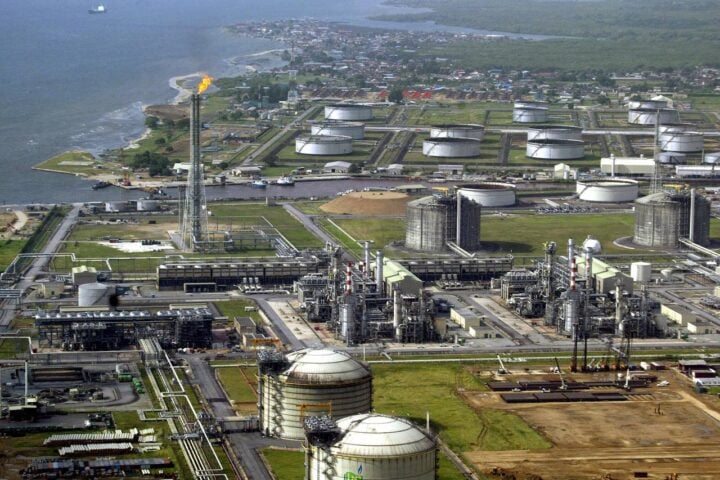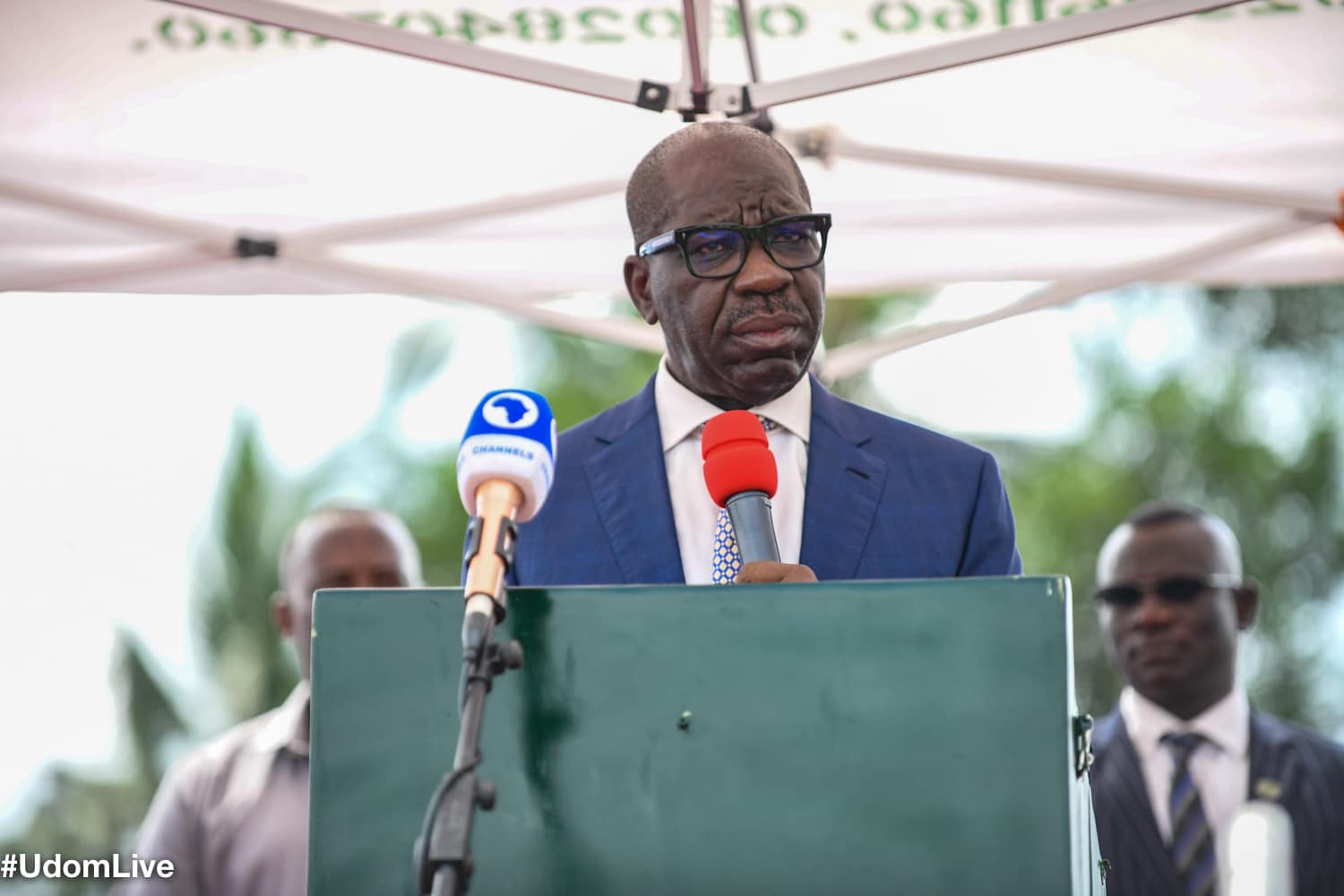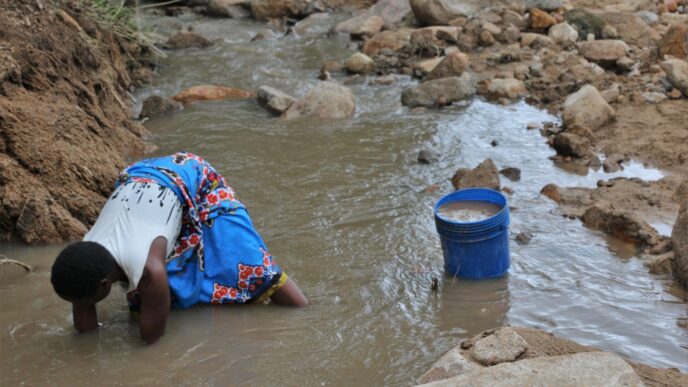‘There is hunger in the land’ has become a common refrain in the Nigerian landscape owing to the fallouts of the harsh economic situation in the country. Although this is a reality on the ground, the narrative is amplified monstrously by mongers who rather than face the contributory factors choose to run on blame lanes, pointing accusing fingers at perceived nemeses. Nonetheless, there are causative factors. Addressing those factors would bring faster relief than continuously lamenting the situation.
Nigeria’s journey to the current economic situation has been long and in some ways curious. It is largely self-inflicted, even if this is often downplayed or entirely dismissed in some quarters. The fact remains that Nigeria and its people got intoxicated with the petro-dollar of the late 1960s and early 1970s such that they went to sleep midday, ignoring other sectors that used to keep the country in the league of prosperous nations. The endowments that made Nigeria play in the premier economy league are still there, but complacency left them fallow.
Nigeria’s dependence on a commodity whose production levels and market price are entirely determined outside its jurisdiction, coupled with the entitlement orientation of the source areas, has brought the country to the present realities. The hardship experienced today is not as a result of famine in the land but famine in our consciousness. Like most famines, this one had long been predicted but was overshadowed by the people’s disposition to political indulgencies and religious delusions.
Time was when agricultural produce sustained the country’s economy. Focus on these was lost with the discovery and exploitation of crude oil in commercial quantity. Crude oil became the nation’s bride. It was dubbed the black gold. It gained all the attention available. Investment in oil overshadowed those in other sectors. Petro-dollars flowed like streams on a slope. The hitherto economy enablers were neglected and the nation wallowed in fiscal profligacy.
The world needed crude oil to run its machines in different sectors. Those who had it were revered and those who needed it grovelled at their feet. It happened in spite of the negative effects on the environment, pre and post-production. Then the issue of climate change came. The need for safer sources of energy became necessary and urgent. The advent of renewable energy trumped the need for fossil fuels. It signalled the beginning of the end of the reign of fossil fuels, particularly crude oil and coal.
Advertisement
The campaign for a safe environment and the need to preserve the earth and humanity became a priority. The gradual depletion of the ozone layer fast-tracked the urge to reduce carbon footprints, concentrate on green energy and eventually do away with hydro-carbons. Countries reduced to mono-cultural economies because of excessive reliance on the proceeds of fossil fuels started having fever. They have been compelled to embark on a gradual shift from fossil fuel, including coal, crude oil and gas, to green energy and drastically reduce the amount of carbon (net zero) released into the atmosphere within a period targeting 2050.
Nigeria happens to be one of the countries caught in the dilemma, as it still has huge unexploited hydrocarbon deposits. As of January 1, 2024, it had 37.5 billion barrels (bbls) of crude oil and condensate and 209.26 trillion cubic feet (tcf) of gas, which accounts for 30% of crude oil and condensate and 33% of natural gas reserves in Africa. Nigeria’s OPEC production quota for 2024 is 1.5 million barrels per day but it has a technical allowable reserve (TAR) of 1,963,186 bpd of crude oil and 372,306 bpd of condensate per day and gas target of 8.9 trillion as of June 25, 2024. The total liquid (crude oil and condensate) production at that date was 1,474,936 bpd.
Notwithstanding, the country has an abundant mix of other renewable energy resources.
No doubt, Nigeria has vast swathes of reserves to develop but the challenge is funding technology and infrastructural development. Since oil is no longer enticing to the industrialised world, funding these aspects is no longer attractive to global financial institutions. This is a highly capital-intensive sector where investors need huge funding to get cracking. The energy transition crusade has greatly de-marketed fossil fuel equity and has taken a toll on investment funding. It has become one of the biggest challenges in developing new reserves, expanding existing facilities and retooling obsolete ones. As the take per barrel reduces, so also is the revenue stream.
Advertisement
Massive investments today tilt toward renewable energy. According to the International Renewable Energy Agency (IRENA), annual investments in renewable energy across the regions have increased between 2013 and 2020 with much in East Asia and the Pacific. In 2013 for instance, investment in that region was $97 billion which rose to $170 billion in 2020. North America (excluding Mexico) also had a sizeable investment between $34 billion in 2013 and $53 billion in 2020. Europe had investments in the region of $49 billion in 2013 and $67 in 2020. Latin America, the Caribbean, Eurasia and others also had substantial investments in the sector.
Comparatively, global energy annual investments between 2015 and 2023 show a rising trend in funding clean energy projects and a declining stretch in fossil fuel development. In 2015 fossil fuel attracted about $1.4 trillion which was the highest and dropped to below $1 trillion by 2023. On the other stretch, clean energy rose steadily from a little above $1 trillion in 2015 to $1.8 trillion in 2023, according to the International Energy Agency (IEA). It is obvious that investment in clean energy technologies is significantly outpacing spending on fossil fuels.
Key findings in the IEA investment report indicate that global energy investment is set to exceed $3 trillion for the first time in 2024, with $2 trillion going to clean energy technologies and infrastructure. That leaves fossil fuel with about $1 trillion. “Investment in clean energy has accelerated since 2020 and spending on renewable power, grids and storage is now higher than total spending on oil, gas and coal,” it stated.
However, International Energy Forum (IEF) projections indicate that oil and gas investments must rise to $523 billion if economic unrest is to be averted. The fear of the manifestation of that indication is more palpable in Africa and the Middle East where there are huge untapped hydrocarbon reserves and a massive need for available and affordable energy.
Advertisement
Given this scenario, Nigeria has little option but to look at other ways and means of developing technologies and infrastructure in its hydrocarbon sector, especially as it battles production challenges. These challenges include crude oil theft, pipeline vandalism, proliferation of artisanal refineries in the Niger Delta region and occasional force majeure which leads to deferments of sometimes up to about 200,000 barrels of oil per day. The deployment of new security architecture in the eastern central and western central production corridors has helped substantially to restore and guarantee a reasonably stable level of production.
Although there are other challenges such as issues bordering on the environment and gas flaring, funding infrastructure development currently remains a major challenge, and this is a global feature in the fossil fuel development arena.
Nigeria’s upstream industry regulator, the Nigerian Upstream Petroleum Regulatory Commission (NUPRC), has been having sleepless nights thinking out ways of increasing participation in production through investment and development of new reserves in particular, as well as improving production in existing fields and wells. Engr Gbenga Komolafe, the Commission Chief Executive (CCE), told the House of Representatives Committee on Upstream Petroleum at an interactive stakeholder engagement on Thursday, June 27, 2024, that because the global energy map is changing, intense competition has also set in, which means oil-producing countries must move away from the conventional strategies to keep pace with the global energy footprint.
To do so, Engr. Komolafe said Nigeria has to align with global realities to attract investors. One of the ways the Commission has received presidential backing is by laying less emphasis on upfront non-refundable bulk payments – Signature Bonus and encouraging a pay-as-you-go version – Production Bonus, as a means of attracting investment in the development of oil blocks, especially as the Commission is currently pushing the 2024 licensing bid round, a cocktail of some oil blocks available for allocation to investors through a competitive bidding process.
Other areas the Commission has explored to bridge the gaps between actual and potential production include accelerated approvals and execution of oil field plans, implementation of the frontier exploration fund provisions in the PIA, ensuring wells are tested periodically and produced at optimal rates, identifying candidate wells for walkover and interventions, technology adaptation, a new paradigm to ensure transparency in hydrocarbon metering and accounting and work programme administration including monitoring to ensure operators meet obligations.
Advertisement
Production cost has always been a disincentive factor, as Nigeria seems to have one of the highest rates. There are indications, however, that this is being addressed, including monitoring financial viability. The major issues which have the potential of dragging investment moves but which have recently been addressed include vacating entry barriers like the front-loading of entry fees and removing regulatory bottlenecks. There is a realisation that Nigeria is no longer enjoying a monopoly in the African hydrocarbon landscape which has necessitated the adoption of a pragmatic approach to ensuring competitive entry fees and commercial viability for investment.
These are likely to help energise the 2024 licensing round which is already at the technical and commercial bid submission stage. The licensing round, a giant step towards growing the nation’s oil and gas reserves, offers selected blocks spanning diverse geological formations with great potential for economic growth and energy security. Nigeria therefore needs all the investment resources it can attract to harness and profit from the vast reserves before the net zero sets in.
James is a Fellow of the Nigerian Guild of Editors
Advertisement
Views expressed by contributors are strictly personal and not of TheCable.
Add a comment











